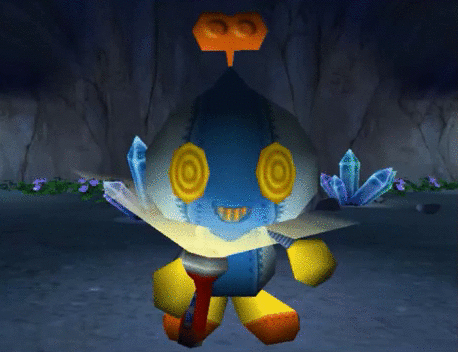(Watch the video version of this article here)
Chang: I am Brutalitops! the Magician! Ha, ha, ha. Magic user, baby. What?
Abed: An arrow flies through the air, almost hitting Brutalitops. Six goblins are running toward you, drawing daggers.
Troy: Oh. I attack them using my… additional notes.
Abed: It has no effect.
Community Season 2 Episode 14 “Advanced Dungeons and Dragons”
That was a moment from Season Two of Community and may hit close to home for any one who has ever experienced the hobby of Dungeons and Dragons before, or most Table-Top RPGs for that matter. There’s a lot of things that could be said about Dungeons and Dragons and its influence on Video Games and their mechanics decades later. However, I want to talk about one interesting design aspect that is highlighted by Mike from Red Letter Media during their commentary of that one really bad Dungeons and Dragons Movie.
…it’s (D&D) made so that there’s so many different ways you can tell stories. There’s no like, its not like Star Wars, you know? Blow up the Death Star or whatever, there’s like, a very specific kind of story. The Dungeon Master has to uh think on his feet, and change the storyline as it happens. You could totally f–k with a dungeon master’s plan of where they’re going, “I’m not gonna go this way, I’m gonna go do this s–t instead” and so hes gotta scramble and rewrite the story as its happening. It’s kinda fun actually.
Mike Stoklasa of Red Letter Media

He goes on to elaborate by explaining that he “ruined” a campaign by killing the final boss by landing a critical hit with a single dart. This is a hilarious example of what D+D at its core is,
collaborative storytelling.
Dungeons and Dragons is much more a system than a game itself, as while pre-made campaigns are a popular and a great way to play, from my experience home-brew campaigns are much more prevalent and rewarding to play, anything could happen in a campaign, sex atop the corpse of a hydra, using magic missile in a bar fight, and much much more.
There are important rules that must be followed however. This is to keep the game consistent and not feel like a playground pretend session, while keeping it open enough for storytellers and players alike to be compelled by the experience.

The addition of chance and skill checks adds the possibility of failure just enough so the table can’t plot armor themselves into immortality.
The game, when played right is brutal, tense, unforgiving, and still more beautifully open ended than most games today.
Not only may I use D&D as an inspiration but its design allows for it to be used as a valuable tool for storytelling and quest design.
When you’re a DM you still have to guide the players through an interesting quest or adventure. Its why Skyrim or Grand Theft Auto works while many procedurally generated open world games don’t, or at least as well. It takes a lot of skill and talent to make a compelling campaign for your party to stumble their way through and it still has to be planned. On the same side of this coin, I have heard stories before where a DM designs this perfect story and thinks that the party will make the same decisions they want them to, but when they don’t, they either have a meltdown or it just breaks the game. (Many Video Games are designed this way and are typically derided for taking away player choice.)
It requires thinking on your feet, I learned this the hard way while in Korea both teaching English and teaching about my religion, You have to think on your feet. The students or party members are not always going to be fascinated by the lesson or quest you have that day and you must adapt. A good DM will take something a player does that goes completely against the story and turn it into a new angle or a new questline. I believe this is a large part of the reason why with all the tech we have in our video games, tabletop gaming and particularly table-top RPGS are still extremely popular, in a good D&D campaign there are no boundaries, or invisible walls, you can ride the bike in the Pokemart, go see whats beyond that wall, and kill the NPC you’re escorting. What becomes of it, the story you’ve participated in, can be something worthy of remembering fondly.




